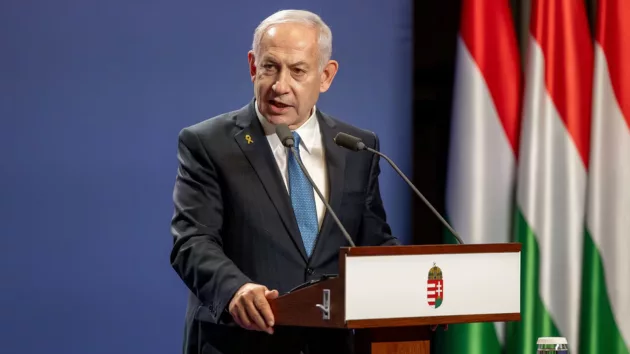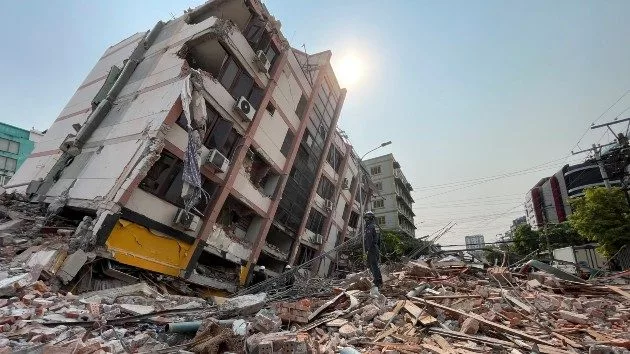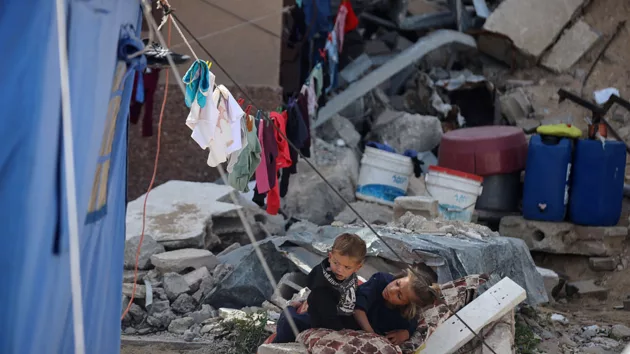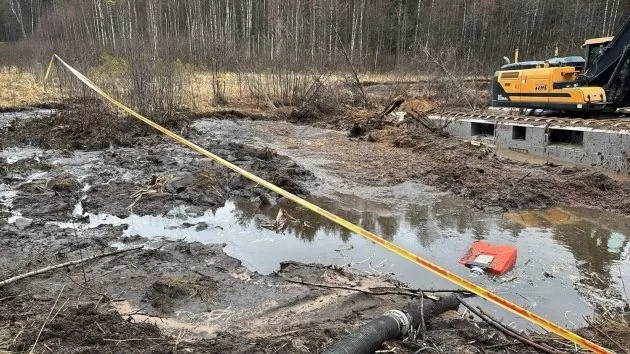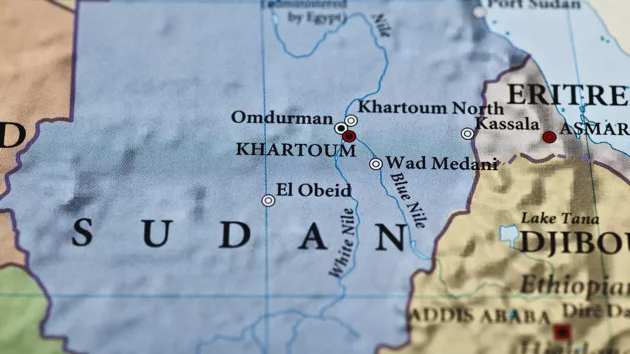
(LONDON) — The U.S. said it is “gravely concerned” following a “large-scale escalation” of fighting in El Fasher, capital of Sudan’s North Darfur state, amid a civil war that has been raging in the North African country for more than a year.
Initial reports of escalating fighting began to surface on Sept, 12 following what eyewitnesses recount as a multidirectional attack on the city by the Rapid Support Forces (RSF) paramilitary group.
The shelling has been consistent, with explosions being heard in the city “several times this week,” Salah, a resident of the city, told ABC News on Tuesday. He asked to be identified by only his first name.
“There are casualties and many civilians have been killed and injured,” Salah said. “People are dying of famine and diseases. It’s a literally catastrophic situation. As I am speaking, the RSF shelling is going on.”
An analysis from the Yale School of Public Health’s Humanitarian Research Lab confirmed the escalation of fighting, finding “unprecedented,” “high-tempo and intense combat activity” ongoing in the North Darfur capital. The report detected “high tempo aerial bombardment” by the Sudanese Armed Forces (SAF) and “structural damage” from RSF bombardment and other combat activity.
“The current levels of high-tempo combat activity are likely to effectively reduce what is left of El-Fasher to rubble,” reads the report.
The U.N. said it has yet to establish the number of civilian casualties in the city.
In a statement, U.S. Ambassador to the United Nations Linda Thomas-Greenfield said she was “gravely concerned about reports of a serious escalation in RSF’s months-long siege on El Fasher.”
That concern was echoed by America’s Special Envoy to Sudan Tom Perriello who said he is “extremely concerned” by the RSF’s repeated attacks on the North Darfur capital.
Two displacement camps — Abu Shouk and Al Salaam — have been shelled in the RSF’s renewed attacks according to US’ Special Envoy to Sudan.
El Fasher is the largest city in Sudan’s Darfur region and the Sudanese Army’s (SAF) last stronghold in the region. The city has been at the center of a fierce battle as warring parties vie for its control, the Rapid Support Forces besieging the city since May of 2024.
The unprecedented escalation brings renewed threat to “hundreds of thousands” of civilians, according to the U.N. That estimate included internally displaced persons who found refuge in the city, many of whom had been displaced from elsewhere through the course of Sudan’s now 17-month civil war.
“The humanitarian situation is so sad,” Yasin told ABC news over the phone from Tawila, a small town in North Darfur where many fleeing the conflict have sought refuge.
He asked to only be identified by his first name for his safety.
“Prices are spiking for food, medicine end fuel is so rare and expensive,” Yasin said.
“Life in El Fasher was scary because every day there are bombs, shelling and crossfire as well as intense clashes,” he said. “Yesterday evening RSF shelled areas like Mawashy Market, Thoura and Mudarag. These areas are filled with civilians, and the number of human losses till no are unknown because people are hiding.”
The U.N. Resident and Humanitarian Coordinator for Sudan Clementine Nkweta-Salami has expressed “profound sadness and frustration” over the situation, saying the attacks on the city “violate every humanitarian principle.”
“This is heartbreaking and must stop,” Nkweta-Salami said. “There is no excuse for direct attacks on civilians, their assets and essential facilities such as hospitals.”
In a statement sent to ABC News, Médecins Sans Frontières (MSF), also known as Doctors Without Borders, says nutritional screenings carried out in conjunction with Sudanese health authorities in Zamzam camp, just 15 km south of El Fasher, indicate malnutrition rates that are “likely some of the worst in the world.”
“Not only do the results confirm the disaster that we and other stakeholders have been observing and alerting on for months, they also indicate that every day, things are getting worse and we’re running out of time,” said Michel Olivier Lacharité, head of emergency operations for MSF. “We are talking about thousands of children who will die over the next few weeks without access to adequate treatment and urgent solutions to allow humanitarian aid and essential goods to reach Zamzam.”
The war in Sudan has precipitated one of the world’s worst hunger crises with over 750,000 people experiencing “catastrophic levels of food insecurity.” according to the U.N.
The conflict has killed over 20,000 people according to a senior U.N. official, but local groups warned the true toll is likely much higher. At least 13 million people have been forced to flee their homes since fighting began in April 2023, according to the International Office of Migration (IOM).
“The level of destruction, death, displacement and disease in Sudan is tragic,” said World Health Organisation Director-General Dr. Tedros Ghebreyesus on Tuesday.
The WHO chief was in Chad on Tuesday to join the delivery of a medical supplies convoy across the Chadian border of Adré into Sudan.
Recent flooding has hampered the delivery of aid through the Adré border.
“Chad’s valleys are filled with carcasses of trucks. But we are making progress,” said Toby Harward, the U.N.’s deputy humanitarian coordinator for Sudan.
“I urge RSF to halt its attack, including bombardments destroying infrastructure and threatening civilian life, and fulfil its commitments to the international community to protect civilians,” said Thomas-Greenfield.
Copyright © 2024, ABC Audio. All rights reserved.




